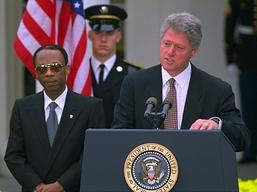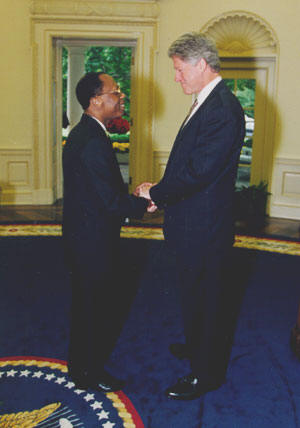| Want to send this page or a link to a friend? Click on mail at the top of this window. |
| Posted November 2003 |
|
|
| Teleco Haiti Aristide's American Profiteers |
| _________________ |
| By MARY ANASTASIA O'GRADY, |
| Wall Street Journal |
 |
| Associated Press Photo/Ron Edmonds - Bill Clinton and then Haitian President Jean-Bertrand Aristide, Oct. 14, 1994. |
 |
|
 |
|
| Jean-Bertrand Aristide's once luxury home in the Port-au-Prince section of Tabarre immediately after he was deposed and went into exile, on February 29, 2004. (Photo wehaitians.com, file) |
Jean-Bertrand Aristide (left) conversing with then U.S. President Bill Clinton, in 1994. (Photo wehaitians.com, file) |
| Wehaitians.com, the scholarly journal of democracy and human rights |
| More from wehaitians.com |